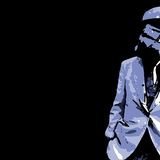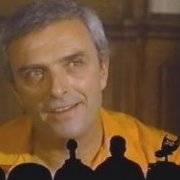Leaderboard
Popular Content
Showing content with the highest reputation on 04/29/19 in Posts
-
4 pointsBased on geography, I have a feeling it might take a little bit for Max to tell us his pick. So...settle in everybody.
-
4 points
-
3 pointsI think she was already possessed at that point but she just wasn't taken out of her own body yet. Because that was also the same day her mother told her to go see Father what's his face and she tried to put her cross to her forehead to start to pray and she couldn't actually physically do it. Her hand was like shaking and she struggled to put it to her face so she just gave up, and I believe it's because Mary Lou was already inside her.
-
2 pointsScott Aukerman celebrates the 10th Anniversary of Comedy Bang! Bang! by implementing a true open door policy and welcomes fan favorite guests of the show over the last 10 years! Featuring: Jason Mantzoukas Andy Daly Paul F. Tompkins Seth Morris Jon Hamm Lauren Lapkus Jessica McKenna Zach Reino Jon Gabrus Ego Nwodim Zeke Nicholson Carl Tart Rob Huebel Thomas Lennon Matt Besser Paul Scheer Tawny Newsome Madeline Walter Taran Killam Paul Brittain Ryan Gaul Thomas Middleditch Adam Scott Chelsea Peretti Nick Kroll Drew Tarver "Weird Al" Yankovic Paul Rust Neil Campbell Bobby Moynihan Mary Holland Horatio Sanz Ben Schwartz Jon Daly Shaun Diston Mike Hanford Will Hines Brendon Small Jessica St. Clair Lennon Parham James Adomian
-
2 points
-
2 points
-
2 pointsSee I thought it had more to do with if she doesn't win officially her spirit can't move on, but yes murder makes more sense.
-
1 pointI think you mean Dan O'Bannon co-screenwriter of Lifeforce.
-
1 pointI listened to all ten hours already. Sure, I was asleep for seven of them, but I left my ears on so I was listening.
-
1 pointSweet baby Jeebus, TEN hours... I mean, thank you Scott and everyone involved in the past 600 episodes and in this celebration. This ten hour celebration. Thank you. C+
-
1 point
-
1 pointNeil Young was at Woodstock with CSNY but refused to allow them to use any footage of himself in the titular rock doc. (Rock and Roll Documentary) ;)
-
1 pointBecause this way she gets to murder!
-
1 pointSo Mary Lou has many interesting powers. Paul and the gang talked about how weird it was she was able to kill not-Real Genius via electricity via the computer. However this glosses over the even more incredible power she has in that scene. Half a school away not-Real Genius is changing the results on the computer and she can sense it! She literally feels it the moment it is changed and then proceeds to grab an outlet to electrocute him. Does being a evil spirit also give you a Spider Sense that is tuned into prom king and queen status? In addition even though he types it into the computer she somehow uses her powers to change it back to herself anyway. If Mary Lou could change the results at any time why would she even need to try to get not-Real Genius to pick her anyway?
-
1 pointHere's my take on this because Treasure of the Sierra Madre is a film I love and Chinatown was a film I appreciated but not loved. I think the bleakness of Sierra Madre is a universal and more biblical bleakness. In Sierra Madre the "evil" are punished while the "good" are rewarded. Howard, while also a gold chaser, is the moral compass. He imparts wisdom and lessons that should be learned while Dobbs ignores them. The movie is bleak and says that man has many problems and vices and is prone to temptation and violence and a whole host of ills BUT it doesn't have to be that way. There is that hope or at least that silver lining that makes the audience member go "I would be like Howard not Dobbs... I hope." Meanwhile Chinatown is about how everybody and everything is terrible. The "evil" are rewarded and the "good" well... are there any? I guess Faye Dunaway is the closest and she is shot in the head. So the "good" get nothing. This is the far bleaker message for sure, but the message for the viewer is more along the lines of "you're a cog in a machine, and what you do doesn't matter." There is no moral center to guide us. Not to be confused with Gittes who seems to grow a moral conscious by the end of the film but given that he's a selfish character guided by self interest who's to say that his outrage is at the injustice of it all or because it wasn't his way? To compare Gittes to Dodds, you have these two similar in sense characters, except Dodds knows who he is and is that way to the end. The story is about the bleakness of man and how if we change there is hope for us. Chinatown is bleak and even if we do change it's for our own self interest and doesn't really matter anyway. It's giving you your medicine without the sugar, so that's why the one kind of bleakest is easier to swallow.
-
1 pointThe thing about Film Noir is that studios and filmmakers in the 40s weren't aware that they were working within this genre, it was a term applied by French film critics and not embraced by American filmmakers of the 40s and 50s. As far as they were concerned, they were making dramas. Chinatown is a self-aware, revisionist noir, consciously using the conventions of the genre, so it really cannot be placed in the same category as 40s and 50s films. Also, the films considered to be the first noirs are "The Maltese Falcon" (1941) and "Stranger on the Third Floor" (1940) - which means that Chinatown, set in 1937, takes place in a pre-noir era. The height of noir happened in the aftermath of World War II, and those films expose the dark side of the post-war prosperity. Chinatown, by contrast, is made in the aftermath of the Vietnam war, and it looks back four decades to create a narrative of corrupt institutions, and about the futility of good intentions that is more of a response to Vietnam, in the way that the classic noirs are deeply tied to World War II. So, I think it's a different dish.
-
1 pointI have to say, the attendance at New Wave Girl’s funeral was disappointing. And poor Michael Ironsides, having to live with both the responsibility of taking a life and early-onset male pattern baldness...
-
1 pointI fully endorse Mary Lou for prom queen of the world 2020
-
1 point
-
1 pointI’m in the middle of watching the movie now, and I have to assume the entire episode is just them gushing over how fantastic it is. It seems pretty flawless to me.
-
1 pointI feel like Charlize Theron wanting to give her Oscar to the star of Hello Mary Lou counts.
-
1 pointI finally saw the movie, and Mary Lou Maloney is a feminist icon.
-
1 pointI'm surprised to see that so far no one seems to have mentioned how nearly every character given a last name in this film is named after a famous, infamous, or not-so-famous director, usually of the horror variety. Vicki' Carpenter, for John Carpenter Kelly Henenlotter for Frank Henenlotter (director of Basket Case and Frankenhooker) Monica Waters is possibly named for John Waters Jess Browning for Todd Browning, director of the original Bela Lugosi Dracula, Freaks, and others. The science teacher who gropes Vicki in class is Mr. Craven, for Wes Craven. Matthew Dante named for Joe Dante Eddie Wood for Ed Wood Another teacher is Mr. O'Bannon, probably named for Dan O'Bannon, screenwriter of Alien and writer/director of the first Return of the Living Dead And a couple other bit parts are named Mr. King and Mr. Romero. I'd never seen this movie until it was on the podcast, mainly because I'm not a huge slasher fan and I don't care much for the original Prom Night, but this was a ton of fun. I'm so glad it was covered and that it directed me towards Prime to check it out. This is maybe my favorite movie I've discovered through the podcast.
-
1 pointJohn Alonzo, the cinematographer of Chinatown says that as they prepared to shoot the final scene, Polanski approached him and said that he had decided to go handheld after Evelyn gets shot, to do it documentary style, panning quickly, and then craning up, still handheld. This shot posed a lot of technical difficulties for lighting, following focus, and finally, the issue of the camera shadow being visible on the actors. According to John Alonzo, Polanski told him "Put a hat on the camera. You’ll see a shadow if you look at the picture closely, but it will look like a hat shadow." So they put a hat on the camera. I tell this story because lost in the discussion of this movie on the podcast is the fact that Roman Polanski was a very shrewd and inventive director, but to hear this podcast you'd think he was a goon who did it for the cash, lucked into a good screenplay (despite the fact that the ending is all his), the actress directed herself, and the only good thing he did for the film was to let them call him a midget in the scene that he acted in. Roman Polanski the human may be indefensible, but Roman Polanski the filmmaker deserves a lot more credit than is given to him on the podcast, for this film. It was he who composed all the shots, it was he who decided to light everything without difussion, it was he who decided that every time Jake Gittes arrives at a house, he should have to walk up a hill, or up a set of stairs, to emphasize the uphill battle he faces. He may have done it for the money, but he exercised a lot of control over the film. It's perfectly fine to say, fuck this guy, I'm not watching his movies, but if you're going to watch Chinatown and engage with it, you have to acknowledge all of Polanski's contributions to its greatness as a film. All you have to do is look at his filmography and see the consistency of style, and the precision of his camerawork and lens choices, independent of who his cinematographer is. He trained as an actor himself, and he got great performances out of Mia Farrow, Catherine Deneuve, and Nastassja Kinsky - unless we are going to make the case that they also directed themselves. I'll quote John Alonzo: "Roman is a stickler for details. He wanted everything just right — Faye Dunaway’s fingernails, Jack Nicholson’s ties and coat, the color balance of the clothing against the wall, the perspective of the cyclorama, the backings outside the windows...So he led the way. He did this by staging the action in a particular way, by making certain words within a scene more important than others, by requesting that I light — and something not put light on — actors. There were times when he felt that he wanted the audience to listen to the words, as opposed to seeing the actors speak them. I hope I don’t sound like I’m overdoing it, but I really mean it when I say that he is a very thorough and investigative type of director who gives credit where credit is due. He figures that if he has hired certain technicians, they must be good at what they do. That’s one of the things that made working with him on Chinatown a pleasure." Finally, the podcast says that this was Robert Towne's first produced screenplay. That isn't accurate. He had already made The Last Detail.
-
1 point
This leaderboard is set to Los Angeles/GMT-08:00
-
Newsletter




















